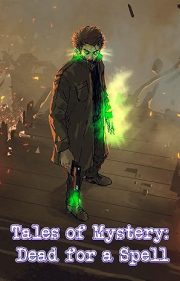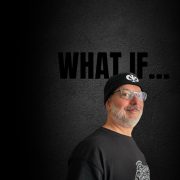Sci-Fi Has a Cure Problem
By Ashley Deng
I won’t beat around it too much: The context for this essay is our current, global healthcare crisis. Let’s just say that our sci-fi trope of a massive-scale health crisis that can be Fixed With Science has happened to us in the real world. We were all eagerly awaiting the coveted cure–The Vaccine to Make All This Go Away, except, it turns out, coronaviruses are incredibly difficult to develop sterilizing immunity against. Even with diseases where we can develop sterilizing immunity, a vaccine isn’t a cure, because “cures” aren’t a thing. Not really.
As we see more and more people scrambling to either discredit the vaccine (for reasons stemming from above) or attempting to find a singular drug to be their “miracle” treatment, we have to wonder how exactly we got here. Sure, there’s an element of contrarianism, or a larger element of anti-government sentiment, but what about the way events like these have, for decades, been portrayed as fixable by science with a single, miraculous cure?
It makes sense, narratively, to end a story with the distribution of a successful drug; it ties up the threads neatly, it gives the audience a satisfying sense of finality. The disease can be cured, everyone will be okay, and the world can go back to normal. It’s the ending of practically every pandemic-related piece of fiction, from Outbreak to I Am Legend* and the Resident Evil and Dead Rising game series, where the key to the cure against the world turning into zombies/vampires can be found in the blood of a singular human, somehow—magically—already immune**. (Barring entirely that antibody therapy and vaccines are two separate forms of medicine, the former being a post-infection treatment while the latter is preventative.)
When it comes to writing about fictional diseases, it’s important to remember that a “disease” is a cluster of symptoms, that they’re the physiological effects of our immune systems reacting to a pathogen thriving in the ecosystem of our bodies. When writing about disease and subsequently their treatments, you can’t just remove the pathogen because even in its absence, our bodies must deal with its reverberating effects.
Even after the development of treatments or preventative drugs, we can’t “cure” a disease; experimental treatments don’t make everything go away. Instead, they help our bodies cope. They might treat symptoms or target the source of infection or prevent infection entirely, but mostly, they give us the chance we need to fight off disease. Medicine is an ongoing process, meant to alleviate symptoms of disease, to make life bearable until our bodies can work out how to make us better. So not only are cures not the goal of science and medicine, cures are fundamentally not something we can make.
When writing, we should consider the ways that medicine and healthcare are a framework, and the potential ways that could manifest in how we present medicine in our stories:
- Diagnostics – Rather than treating medicine as a single field in search of a cure, it might be useful to look at the different disciplines involved in diagnostics. Each discipline also comes with its own advantages and challenges, which presents us with possibilities to explore in fiction. For example, improvements in the field of radiology might provide us with better imaging and detection of a tumor, but a patient might still need to wait until the disease is further along if advancements in surgery are not also made. Or, discovering new molecular markers in our bloodstream (which may be analyzed by a variety of different specialists, from endocrinologists to haematologists to immunologists and more) that can sooner detect pathologies in a patient.
- Scientific process – Research toward treatments can be a complex and nebulous endeavor, but science fiction should also be a place to explore what said research might look like with different resources or newer, more advanced technologies. Portraying research as the complex and nebulous journey that it is opens up discussions regarding the processes of scientific research (such as experiment design, in-vitro testing, clinical trials, and data analyses) that are not frequently portrayed in the media. We should resist oversimplifying the rigor of science for the sake of narrative and instead embrace its many facets and the frameworks and systems of healthcare, and let it deepen the complications and obstacles for our characters.
- Definitions of “care” – Since cures don’t exist, how can we reimagine what “care” might look like with future technologies? Focusing on ways to improve patient life (including building accessible worlds), preventative medicine, or better diagnoses can provide us with a way to delve into realities of healthcare while imagining advances.
Perhaps it’s open-ended, narratively, but it would mitigate the thinking that “cures” exist, thus cutting back on potentially life-threatening home remedies or the search for a “truth” beyond what medicine can actually give us. We need to reflect that no matter the scientific advances, medicine and healthcare aren’t about curing, they’re about treating, because our stories can have immense power to influence the collective understanding of science and medicine.
Endnotes
*Even further, the film adaptation has the virus being created initially to cure cancer (which is a cluster of diseases, all of which have different treatments), but instead causing people to turn into zombie-vampires. More cures, go figure.
**In the case of Outbreak, we have a non-science fictional disease but the cure still comes from turning the antibodies from an organism (in this case, a monkey where the virus originated) into antiserum in order to cure the population.



